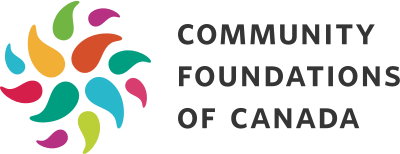This story is part of a series of profiles highlighting Queen Elizabeth Scholars past and present, working on the COVID-19 response in Canada and worldwide. A collaborative initiative of Universities Canada, Community Foundations of Canada and the Rideau Hall Foundation, the Queen Elizabeth Scholars program supports a community of young global leaders, supporting them as they create lasting impacts both at home and abroad. The inter-cultural exchanges made possible by the program encompass international education, discovery and inquiry, and professional experiences. Catalytic support for QES was provided by The Victor Dahdaleh Foundation.
Addressing today’s crises and challenges, requires bold leaders with big ideas – and networks that support them. According to Dr. Ahmad Firas Khalid, medical doctor, health policy researcher, advisor and educator, the Queen Elizabeth Scholars program sets the necessary conditions.
“In the centre of my wall of degrees is my Queen Elizabeth Scholarship letter,” says Firas, a two-time Queen Elizabeth Scholar who holds a medical degree, two master’s degrees (in health care management and education), and a doctorate in health policy. “That letter reflects my membership in a community of leaders working to solve the world’s biggest challenges – a community I continue to look to today for mentorship, guidance and support.”

The Queen Elizabeth Scholars program gives young leaders time, money and resources to immerse themselves in an international learning experience. During his Ph.D. investigation of the use of evidence in decision-making in crisis zones, the scholarship allowed Firas to spend three months in Lebanon. Firas worked with Doctors Without Borders (MSF) evaluating their approach in transferring research knowledge to policy and practice during the Syrian refugee crisis. This experience shed light on the importance of academics functioning as part of a larger collaborative model that connects research evidence to community needs.
Combining available evidence with community needs for effective crisis response
In early 2020, Evidence Aid, a nonprofit organization that aims to save lives and livelihoods in disasters by providing decision-makers with the best available evidence, recruited Firas as a senior research manager. Firas worked with a team of volunteers to evaluate the rapidly expanding and evolving evidence on topics including the direct impact of COVID-19 on health and other outcomes, the impact on other conditions, and issues to consider for the recovery period. The focus was on evaluating and summarizing COVID-19 research, enabling decision-makers to act on it in real time.
“To ensure the best care for those infected by COVID-19 and to limit transmission, decisions must be based on evidence from research,” explains Firas. “The work of Evidence Aid is important because the most relevant and current academic research may not always be accessible; it’s often behind paywalls and written in complex language.”
Decision-makers worldwide have been using the Evidence Aid COVID-19 collection – one of the best available repositories on the subject today – with more than 400,000 users having accessed the summaries.
A multifaceted approach to ambitious change
Another way that Firas responded to the pandemic in 2020 was by rapidly developing and then teaching simulation-based COVID-19-related courses at Ontario universities. Recently, he was hired by the Canadian Red Cross (who are part of the federal government’s COVID-19 response) as their senior researcher and learning consultant for epidemic prevention and control.
With his involvement in projects that address health and wellbeing, education, reducing inequalities, sustainable communities, and partnership – as well as peace, justice and strong institutions, Firas is part of a global effort under the United Nations Sustainable Development Goals (SDGs). The SDGs are a set of 17 ambitious goals that serve as a worldwide call to action to promote prosperity while protecting the planet.



“Change can only happen through ambitious ideas,” says Firas, “and today’s leaders can be innovative, bold and courageous when supported by the types of networks and communities the Queen Elizabeth Scholars program provides.”
“The pandemic has caused us to close in and lock up: when we start re-opening, we can’t lose sight of the importance of travel, international knowledge exchange, and networks. Engaged, effective leaders understand communities because they are immersed in them, and the solutions they put forward are grounded in what people need. By sharing knowledge, strengthening relationships and building bridges between efforts, we can cultivate strong, resilient and inclusive communities.”

Would you like to learn more about how the Queen Elizabeth Scholars program is mobilizing a dynamic community of young global leaders? Visit: https://queenelizabethscholars.ca/
The Queen Elizabeth Scholars program has been generously supported by the Victor Dahdaleh Foundation.




